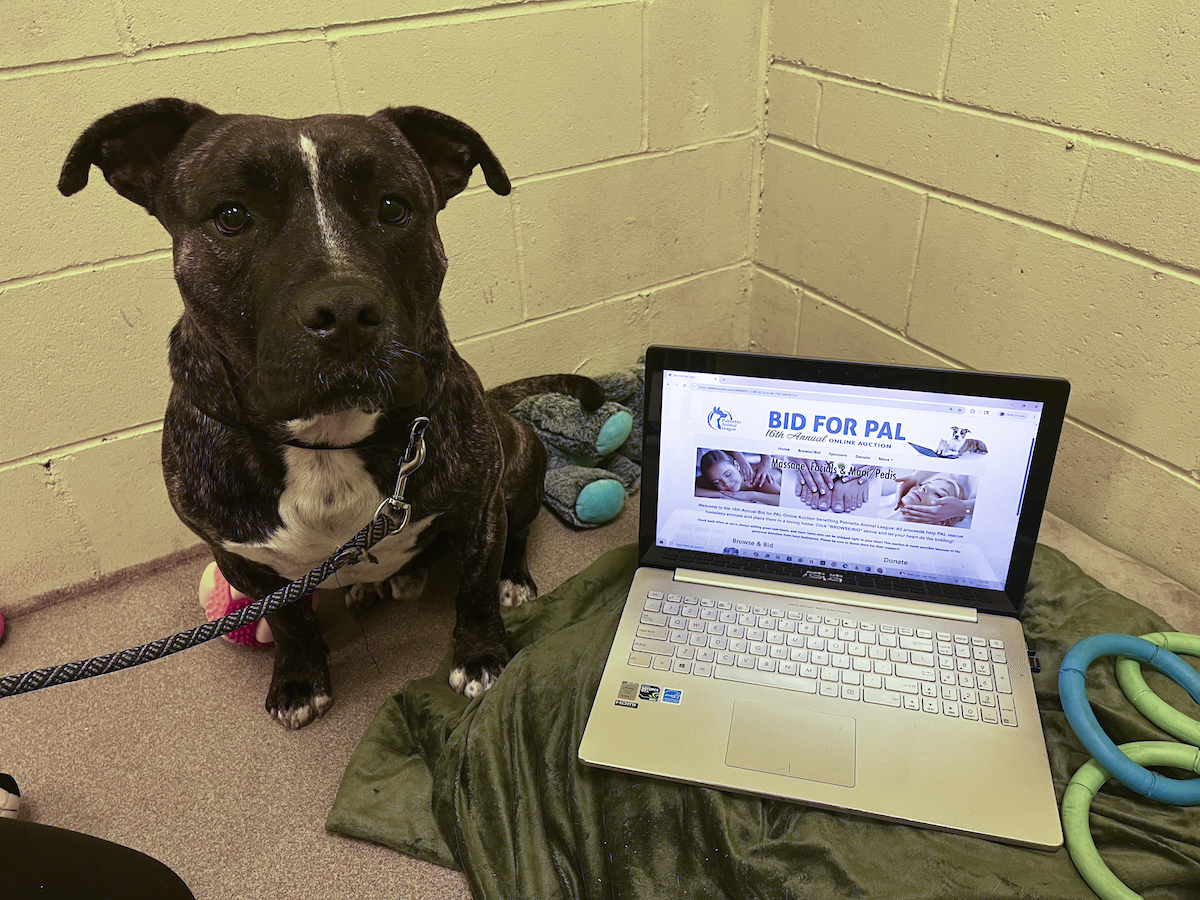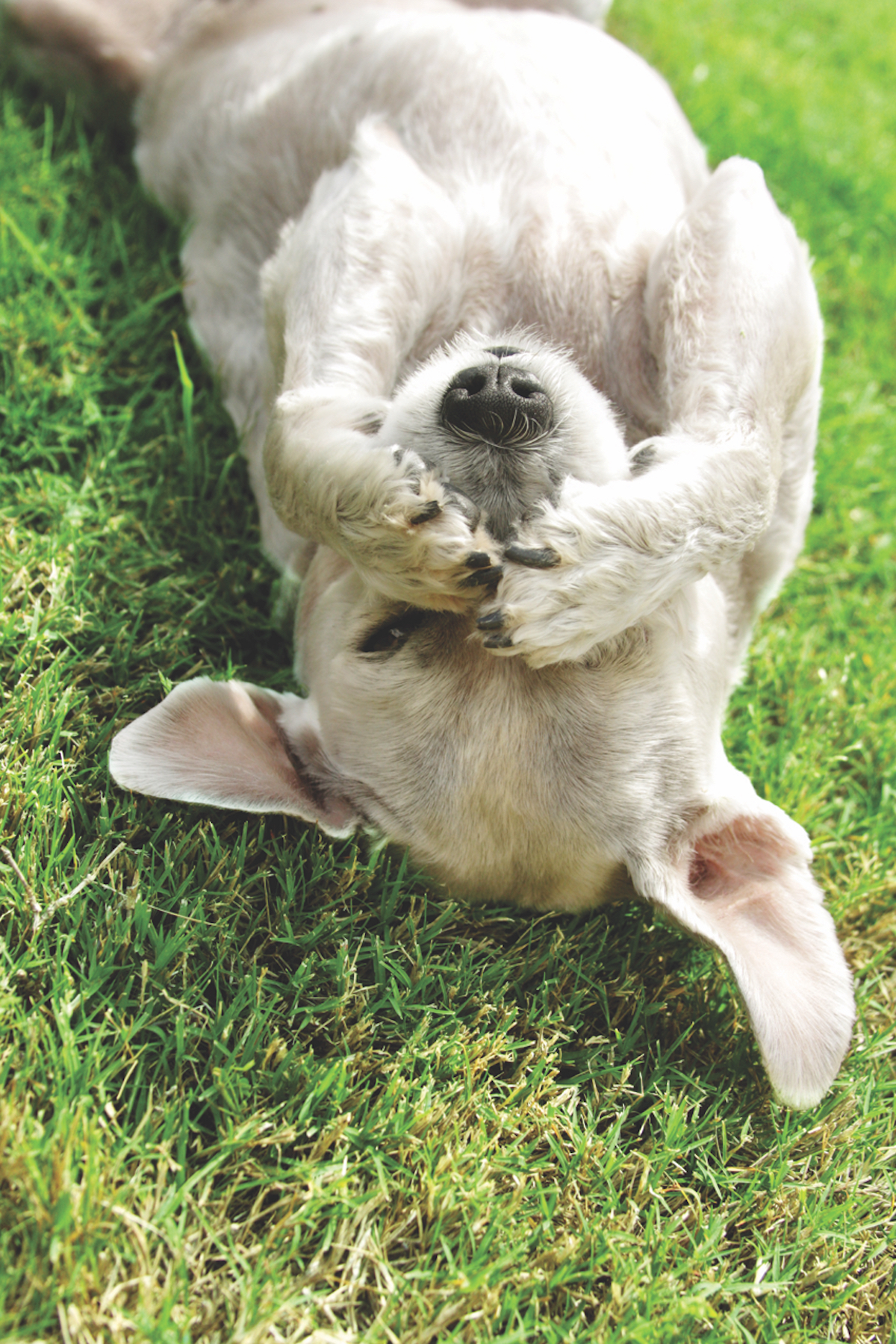By Tracie Korol
A new dog moved into our neighborhood. He’s a sturdy 3-year-old pit bull with one ear that flops and one that stick up charmingly. He also comes with a pretty magnificent pair. You know what I’m talking about. I encountered him on a walk with my dog charges and attendant dog friends and, not having been introduced, shooed him off. You see, my neighbor dog, Pooh — the Jack Russell that lives at my house but over whom I have no decision-making rights — also has a pair.
I located and had a chat with the pit’s owner and was assured that Elmo (yes, Elmo) was a really good dog; he was a shy pup that tended to run away from his own shadow and spent his early years as companion to the owner’s late mother. Hmm, well, OK. Two days later, Elmo appeared unexpectedly in my yard as most Dogs Without Borders eventually do. Pooh and Elmo met rear-to-rear and face-to-face and the energy changed in a split second. Because I speak Dog I saw that their conversation was going downhill fast so I tossed a hyper-excited Pooh in the house and again, ran Elmo off. Later that day I had a chat with the owner about curtailing Elmo’s roaming and yes, getting Elmo neutered. Hopefully, I will be able to have that same chat, as I do on a bi-monthly basis, with Pooh’s owners.
Regularly, when having this pointed conversation with a male owner of an intact male dog, I first notice the headshake, then the moment of glassy stare and finally the quick, furtive glance to their own nether region. Body language alone indicates the words that will follow, something akin to: “as a man I know these parts affect the way you are.” But, gentlemen, let me say this plainly: This is not about your nuts; it’s about your dog’s.
Your dog will not feel like less of a “man.” In fact, your dog will simply have one less need to fulfill. He will not mourn the loss of his reproductive capabilities. A dog’s basic personality is formed more by environment and genetics than by his hormones; consequently, neutering will not change your dog’s basic personality, make your dog fat or affect his natural instincts to hunt, guard or protect. But it will give you a better-behaved pet.
A 1 or 2-year-old intact male dog may act like a neutered male in terms of being easy to live with, but chances are that if you leave even an easy-going fellow intact to the age of 3 years, you’ll see undesirable behaviors, as with Elmo. The age of 3 is prime time for an intact male dog to be involved in a terrible tragedy. As things stand now in my ‘hood, it is only a matter of time until Elmo and Pooh tangle, and both being determined terriers, that tangle promises to be bloody, if not deadly. For folks who have no reason for breeding their dogs, and do not have the right facilities to keep the dogs from roaming, let alone harming anyone, why live with this increased risk?
I don’t know that the knee-jerk reaction some men have toward neutering is ever going to change. Fortunately, there are plenty of intelligent, responsible male dog owners who neuter their dogs for all the right reasons. It is a testament to how much men love their dogs that they can put their Best Friend’s well-being before their own sense of discomfort.
For a Christmas gift, in lieu of a neighborly plate of cookies, this year I plan to offer the better present to both owners — a neutering plus some lessons in modifying learned behaviors once the deed is done. Wish me luck.






